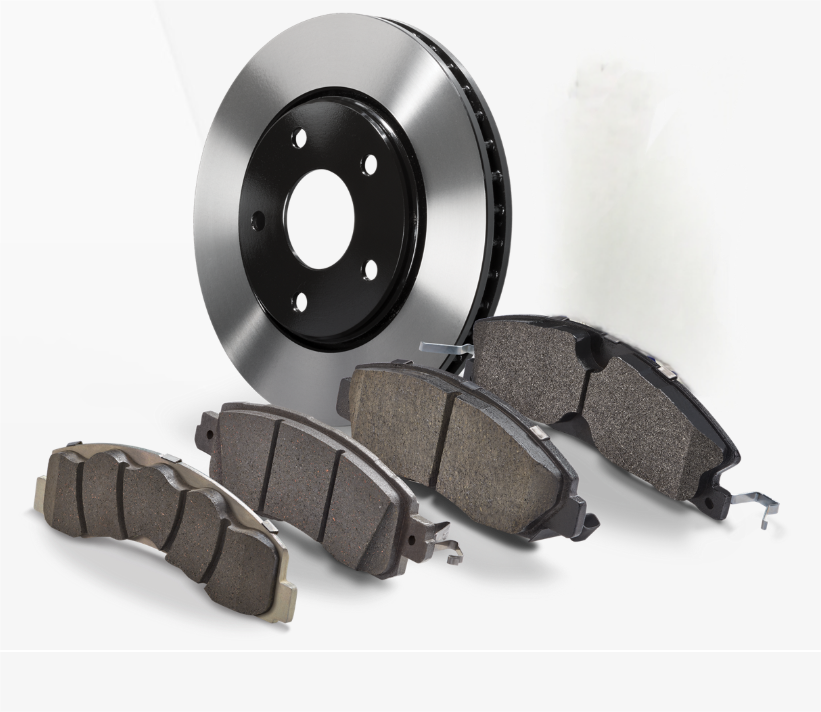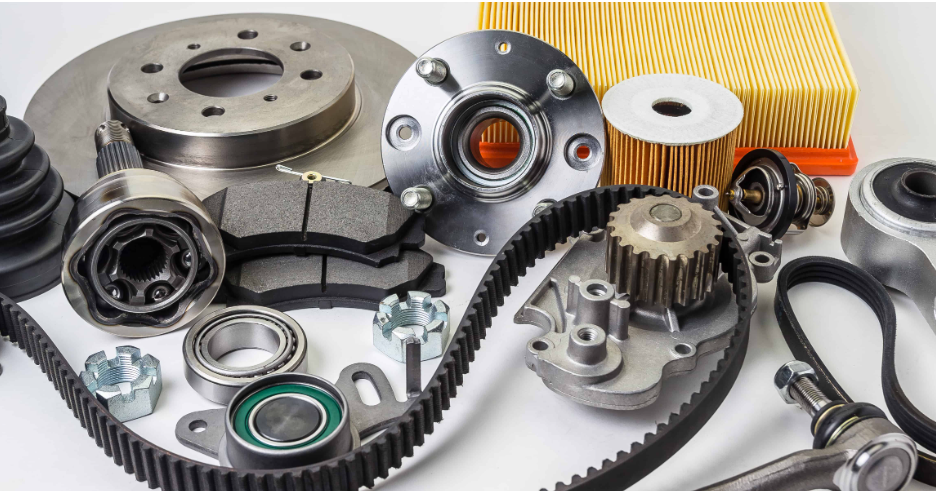Key Features of a Quality Truck Fuel Pump
Durability Under Heavy-Duty Conditions
When selecting a truck fuel pump, durability is paramount due to the demanding environments trucks typically operate in. A quality truck fuel pump must withstand extreme conditions that include high-vibration scenarios and fluctuating temperatures. These performance elements are vital for ensuring long-term reliability. Studies show that durable truck fuel pumps can significantly outlast those of lesser quality when subjected to heavy-duty usage. Understanding this aspect is crucial for those seeking the best fuel pumps for trucks.
Material Quality & Corrosion Resistance
Material quality is another critical feature to consider in a truck fuel pump. Using high-grade materials such as stainless steel enhances resistance to corrosive fuels, safeguarding against premature failure. Corrosion is a leading cause of fuel pump failure, making it essential to know the materials used in these components. Innovations in coatings and treatments can further extend the life of a fuel pump, ensuring it remains robust over time. This focus on corrosion resistance is central to maintaining a reliable and affordable truck fuel pump.
Flow Rate & Pressure Specifications
Choosing a fuel pump that meets the specific flow requirements of your truck engine is essential for optimal performance. There is a direct relationship between flow rate and engine performance; inadequate pressure can lead to engine stalling and reduced efficiency. Experts recommend selecting a fuel pump that exceeds the minimum flow rate specifications to ensure your engine operates smoothly. Awareness of these flow rate specifications helps in identifying what makes the best fuel pumps for trucks, enhancing operational capacity and longevity.
Electric vs Mechanical Fuel Pumps for Trucks
Advantages of Modern Electric Fuel Pumps
Electric fuel pumps offer several advantages that make them a preferred choice in modern truck applications. Their operation is typically quieter, offering a significant reduction in noise compared to traditional mechanical pumps. Additionally, electric pumps provide efficient fuel atomization, which enhances combustion efficiency, leading to better overall engine performance. Many newer truck models are specifically designed to integrate seamlessly with electric fuel pumps, thereby maximizing fuel efficiency and engine power.
When Mechanical Pumps Might Be Suitable
Though electric fuel pumps are popular, there are scenarios where mechanical fuel pumps might be more suitable, especially for older truck models. Mechanical pumps are valued for their reliability and simplicity, as they tend to have fewer potential points of failure. This absence of electrical components eliminates concerns related to electrical malfunction, making them ideal for vintage trucks where sourcing parts might be more cost-effective. Their straightforward design can be more readily adapted when replacing parts in older systems.
Fuel Efficiency Comparisons
Comparative studies underscore the fuel efficiency advantages of electric fuel pumps over their mechanical counterparts. Electric pumps significantly improve fuel economy, which is crucial for the high-demand environment of long-haul trucking. Enhanced delivery efficiency of fuel by electric pumps contributes to optimal overall engine performance. Understanding these efficiency differences is crucial for fleet management decisions, allowing managers to select the best pump type for extensive fuel savings and reliable engine performance.
Common Causes of Fuel Pump Failure in Trucks
Contaminated Fuel Risks
Fuel contamination stands as a primary culprit in the failure of truck fuel pumps, affecting not just the pumps but the whole fuel system. Statistics reveal that fuel contamination accounts for over 60% of pump failures, highlighting the pressing need for stringent quality checks. Regular fuel tests are essential as they help detect issues before they progress into more severe problems. With high-quality fuel and effective filtration systems, you can significantly reduce the likelihood of pump failures, making these factors crucial for maintaining a smooth-running engine.
Overheating & Electrical Issues
Overheating is another major factor that can inflict severe physical damage on fuel pump components, ultimately leading to catastrophic failure. Additionally, electrical issues, such as poor grounding or faulty wiring, have a substantial impact on reducing the lifespan of a fuel pump. Monitoring system voltage is a critical preventive measure that can keep these electrical issues in check before they escalate into severe failures. By adopting proactive strategies like regular electrical checks, you can safeguard your truck's fuel pump from potential electrical malfunctions.
Wear Patterns in High-Mileage Engines
High-mileage trucks come with their own unique set of challenges, often exhibiting specific wear patterns that signal impending fuel pump failure. Understanding and recognizing these wear patterns are crucial for conducting proactive maintenance, which can considerably extend the life of the fuel pump. Regularly scheduled maintenance inspections should always include evaluations for typical wear patterns associated with high mileage. By incorporating these checks into maintenance routines, you can preemptively address potential issues, thereby ensuring longevity and reliability in your truck's performance.
Selecting the Right Fuel Pump for Your Truck
OEM vs Aftermarket Compatibility Checks
Choosing between OEM (Original Equipment Manufacturer) and aftermarket fuel pumps is pivotal to truck performance and reliability. OEM parts are engineered to match specific vehicle designs, ensuring optimal compatibility and function. In contrast, aftermarket options often provide cost benefits but may pose compatibility risks. To make an informed decision, thoroughly research the specifications and reviews of the pump to ensure it fits your vehicle's requirements. Considering the performance history and expert advice can safeguard your investment. S&S Diesel Motorsport and other manufacturers have emphasized the importance of quality systems tailored to modern diesel engines.
Matching Pump Capacity to Engine Demands
Understanding the specific engine requirements of your truck, such as horsepower and torque, is essential for selecting a fuel pump with appropriate capacity. A pump mismatch could result in engine inefficiencies or damage, highlighting the necessity of precise capacity evaluation. For guidance, consult professional resources or manufacturer recommendations. The horsepower and torque demands will inform the flow rate needed to maintain engine performance under varying conditions. Proper pump sizing can alleviate potential performance bottlenecks and ensure consistent power delivery.
Cost vs Longevity Considerations
Balancing the initial cost with the longevity of a fuel pump is crucial for achieving long-term savings. While upfront expenses might be daunting, investing in a high-quality fuel pump can reduce repair and replacement frequency. Studies show that higher initial investments in robust pumps often result in fewer maintenance challenges. Moreover, warranties and support services play a significant role in the overall cost-effectiveness of a purchase. Consider these factors to optimize your truck's fuel system investment, as quality components tend to offer better durability and performance over time.
Maintenance Tips to Extend Fuel Pump Life
Fuel Filter Replacement Intervals
Regular replacement of fuel filters plays a vital role in maintaining the health and longevity of your truck's fuel pump. Sticking to recommended service intervals can prevent common issues associated with clogged filters that lead to unnecessary strain on the pump. Research indicates that failure to maintain your fuel filters could reduce the pump's lifespan by up to 50%. This statistic underscores the importance of preventative maintenance, which is essential in prolonging the service life of your fuel pump and ensuring optimal performance.
Preventing Fuel Starvation Damage
Avoiding fuel starvation is crucial in preventing damage and extending the life of your truck's fuel pump. Keeping fuel levels above the minimum threshold is necessary to maintain the health of the pump. Regularly monitoring fuel levels is particularly important during long trips where oversight can easily occur. This simple yet essential practice can avert costly repairs caused by fuel starvation and protect the pump from damage. Such preventative measures safeguard your investment in the fuel pump and guarantee its effectiveness.
Diagnosing Early Warning Signs
Early diagnosis of potential fuel pump issues can significantly extend the pump's lifespan. Warning signs such as unusual noises, reduced fuel efficiency, or fluctuating pressure should be identified promptly to prevent pump failure. Training truck operators to recognize these early signs is essential for timely intervention. Expert analyses suggest that addressing issues early can reduce replacement costs by up to 80%. Thus, routine checks and proactive measures are beneficial not only for maintaining performance but also for saving on maintenance expenses.







